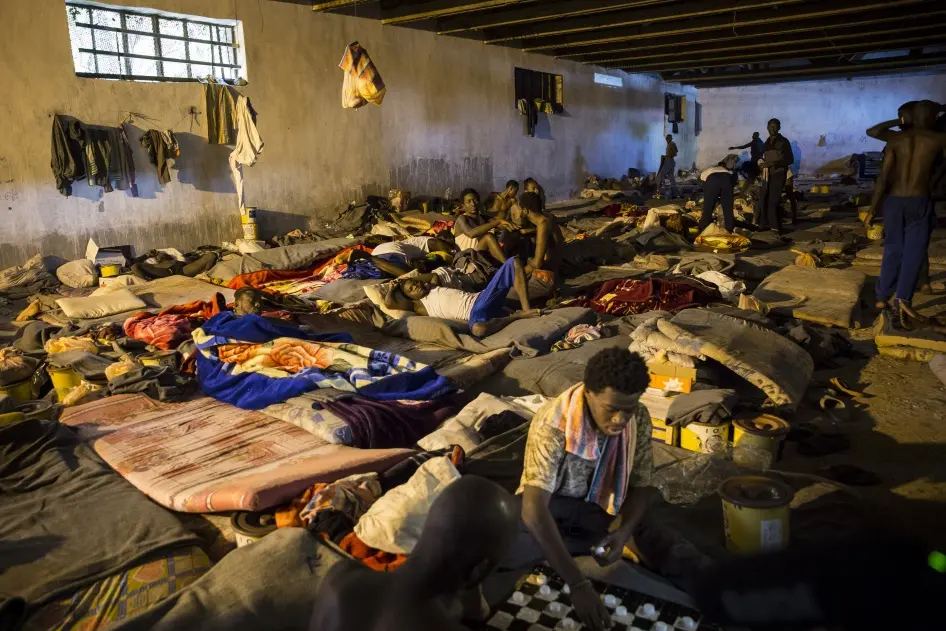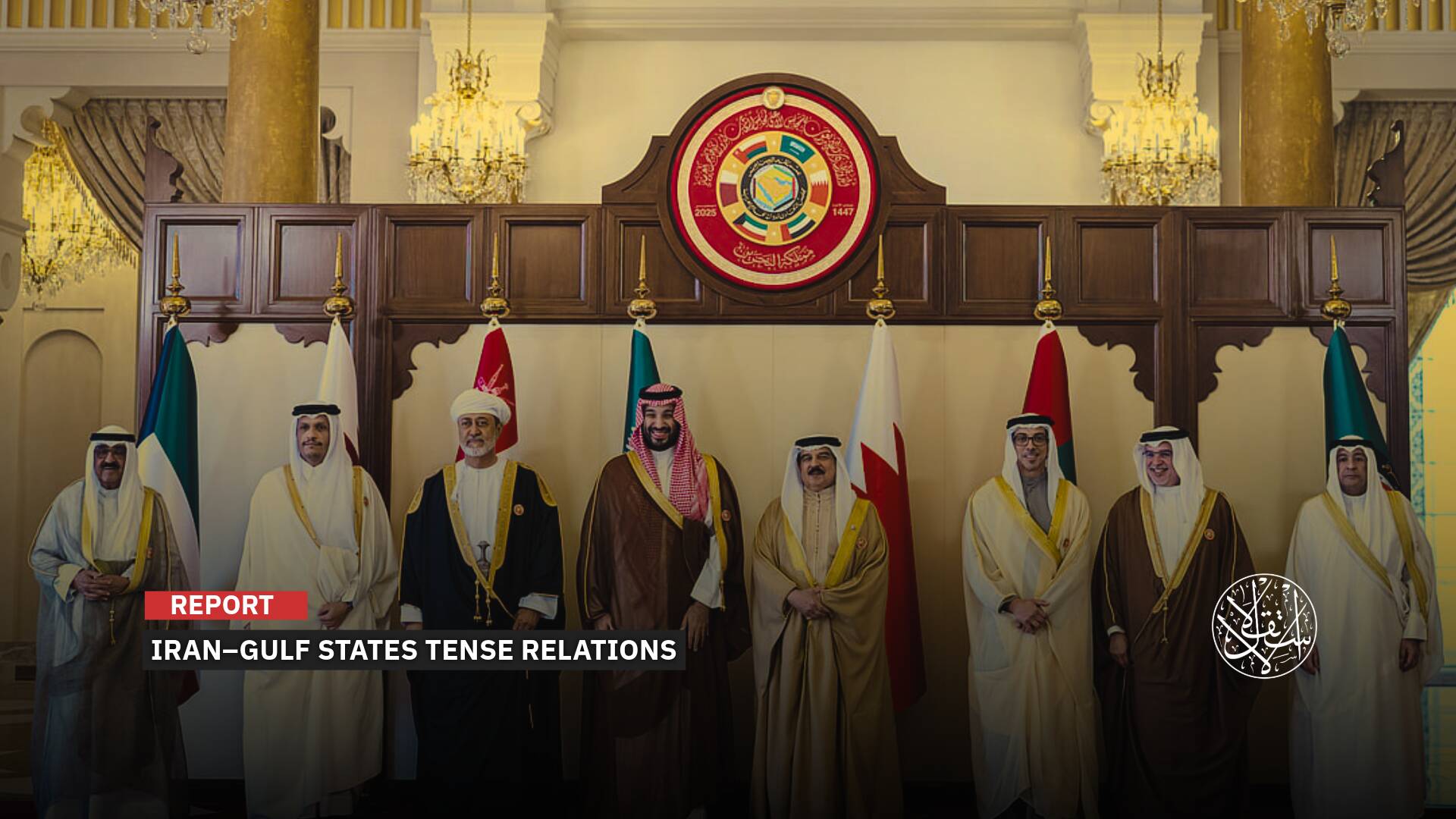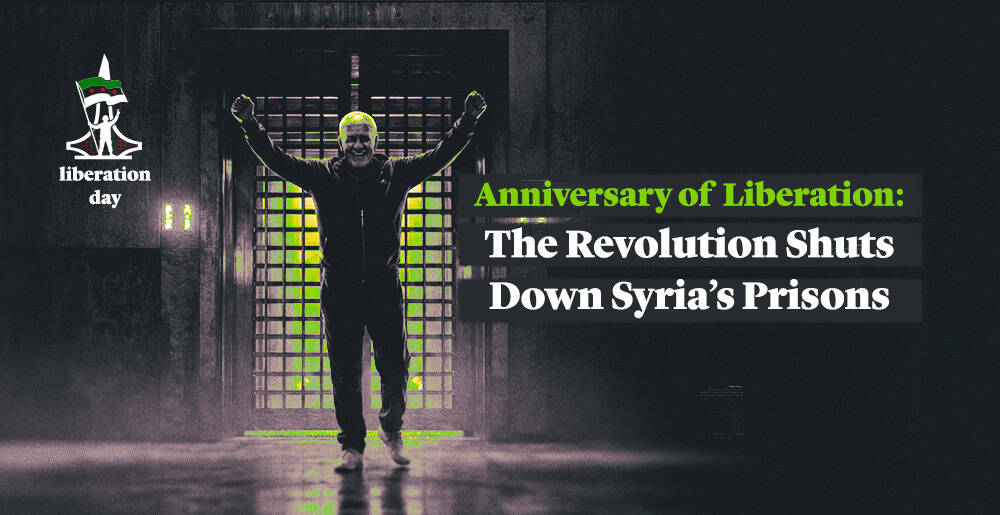Libya’s Rival Factions Compete for U.S. Favor Through the Migration Issue

Rival Libyan factions scrambling for power are locked in a race to win legitimacy from the administration of U.S. President Donald Trump, seizing on one of the most charged issues animating his presidency: migration.
With Trump entering his second term, the White House has embraced an increasingly hardline stance on immigration, marked by plans for mass deportations targeting millions of undocumented migrants.
According to a Reuters report published on March 15, 2025, “The Trump administration is considering issuing sweeping travel restrictions for the citizens of dozens of countries as part of a new ban.”

Libya As a Deportation Option
Amid this hardline stance, the Trump administration is on the lookout for nations willing to accept deported migrants — and appears to have set its sights on Libya.
Wracked by political division, the North African country has become a stage where rival factions vie for favour from the White House in a bid to bolster their waning legitimacy.
According to Western reports, the administration is planning to transfer a group of migrants to Libya aboard a U.S. military aircraft — a dramatic escalation in a deportation program already mired in legal challenges and fierce political controversy.
The nationalities of the migrants remain unclear, but a deportation flight bound for Libya could depart imminently, according to U.S. officials who spoke to The New York Times on condition of anonymity, citing the sensitivity of the operation.
The decision to send deportees to Libya has raised eyebrows, given the country's ongoing conflict and instability.
Human rights groups have condemned the conditions in Libyan migrant detention centres as "horrific" and "deplorable"
According to The New York Times, “The Libya operation falls in line with the Trump administration’s effort to not only deter migrants from trying to enter the country illegally but also to send a strong message to those in the country illegally that they can be deported to countries where they could face brutal conditions. Reuters earlier reported the possibility of a U.S. deportation flight to Libya.”
“The planning for the flight to Libya has been tightly held, and could still be derailed by logistical, legal or diplomatic obstacles.”
“It is unclear what kind of due process might be underway ahead of any Libya deportations,” The New Arab reported.
“The Trump administration has discussed with Libya and Rwanda the possibility of sending migrants who have criminal records and are in the United States to those two countries,” as reported by CNN.
According to The New York Times, “The potential use of Libya as a destination comes after the administration set off an earlier furor by deporting a group of Venezuelans to El Salvador, where they are being held in a maximum-security prison designed for terrorists.”

Libyan Power Struggle
Libya's emergence as a potential option was no coincidence—it came amid a fierce scramble by the country’s rival factions, all of which have seen their legitimacy wane, to win the favor and blessing of the American administration.
More than a decade after the ousting of long-time dictator Muammar Gaddafi in 2011, the country remains fractured and politically paralyzed.
Today, a UN-recognized government holds sway in Tripoli, in the west, while a rival authority led by the militia leader Khalifa Haftar exerts control over the east from his stronghold in Benghazi.
Regarding potential talks with Libya over accepting deportees, The Wall Street Journal quoted a spokesperson for the U.S. State Department as saying, “We are working globally to implement the Trump administration’s immigration policies.”
A U.S. official revealed that early planning by the administration included deporting individuals with criminal records from several countries to the North African state, after senior Libyan officials signaled a willingness to accept the migrants.
The Wall Street Journal reported, “Libya’s two rival governments on Wednesday said they had not agreed to accept migrants from the U.S., disrupting Trump administration plans to fly deportees there.”
Fueling suspicions further, both sides of the conflict have spent years vying for legitimacy from the U.S. administration.
This struggle even extended to competing to establish ties with “Israel,” seen as a gateway to winning Washington’s favor.
Former Libyan foreign minister Najla al-Mangoush held a meeting in Rome with former Israeli counterpart Eli Cohen, prompting the head of the Government of National Unity, Abdulhamid AlDabaiba, to suspend her and launch an investigation on August 27, 2023.
However, in an interview in early January 2025, al-Mangoush revealed that the meeting had been arranged on Dabaiba’s orders, suggesting he made her a scapegoat following widespread protests in Libya condemning the move.
Khalifa Haftar, the main rival, was not far behind. In a covert operation, a plane belonging to him landed at Ben Gurion Airport in “Tel Aviv” in mid-January 2022, though the visit was only later revealed by Israeli media.
Blumental, a military correspondent for the official Israeli Kan channel, disclosed on X that Haftar’s private jet (a B-4R MIA) had touched down at Ben Gurion Airport following a diplomatic stopover in Cyprus, sharing two images from FlightRadar, the global flight-tracking service.
Israeli media confirmed this was the second time Haftar’s plane had landed at Ben Gurion Airport within less than three months, the first being on November 2, 2021, carrying his son Saddam.
According to the Israeli newspaper Haaretz, the visit aimed to establish diplomatic ties to secure direct Israeli Occupation Forces assistance in the ongoing power struggle, in exchange for future diplomatic relations.

Joint Denial
In response to Western reports, the Dabaiba government vehemently denied any agreement or coordination regarding the reception of deported migrants from the United States.
On May 7, Dabaiba dismissed claims that migrants from the U.S. had arrived in Misrata, his hometown, as outright fabrications.
On the morning of the same day, a C-130 aircraft landed in Misrata carrying a high-level Italian military delegation, including the head of the Libyan-Italian Relations Committee and the director of training, on an official visit to the city’s Air Defence College. The arrival sparked rumors about the possible transfer of migrants.
Dabaiba mocked the claims on X and Facebook, posting, “Exclusive footage of migrants arriving in Libya on a military plane,” alongside photos showing Libyan military leaders with their Italian counterparts in Misrata.
He added, "Just like the Yellow Pages said," concluding with, "And if you don’t believe me, blame it on artificial intelligence."
The government noted in a statement that "some illegitimate parallel administrations may be involved in agreements that do not represent the Libyan state and do not bind it legally or politically. The government statement rejected using Libya as a destination for the deportation of migrants."
It reaffirmed its rejection of Libya being used as a destination for migrant deportations without its knowledge or consent, insisting on its right to protect national sovereignty.
The statement referred specifically to eastern Libya, controlled by the renegade General Khalifa Haftar, backed by the Tobruk parliament and the rival government led by Osama Hammad.
Meanwhile, the foreign ministry of Osama Hammad’s administration emphatically reiterated its categorical rejection of any agreements or understandings involving the settlement of migrants of any nationality, be they African, European, or American.
The United States maintains official relations solely with the Government of Tripoli. However, Saddam Haftar, son of Khalifa Haftar, visited Washington at the end of April 2025, meeting with several Trump administration officials in his capacity as “envoy of the commander-in-chief of the Libyan National Army.”
The U.S. embassy in Libya confirmed that on April 28, Saddam Haftar met with Massad Boulos, advisor to the U.S. president, in the presence of Tim Lenderking, deputy assistant secretary of state, and Ambassador Richard Norland, the U.S. special envoy to Libya.
She noted that he arrived in Washington leading a delegation, and the meeting concluded with an agreement that “a safe, united, and prosperous Libya, underpinned by strong technocratic institutions—including the National Oil Corporation and the Central Bank—would be better positioned to engage with the United States and American businesses.”
The discussions around selecting Libya as a destination for deportees come amid growing American interest in the country’s affairs, particularly its security and military challenges.
The U.S. Navy ship USS Mount Whitney made a visit to Tripoli and Benghazi at the end of April, carrying Sixth Fleet commander J.T. Anderson along with other American officials.
They held meetings with their Libyan military and political counterparts during the trip.

A Detention Center
Notably, the U.S. administration’s move comes despite warnings from the State Department advising against travel to Libya due to crime, terrorism, unexploded landmines, civil unrest, kidnappings, and armed conflict.
Libya remains a key transit point for migrants heading to Europe and operates numerous detention centres for refugees and migrants.
In a 2021 report, Amnesty International described these facilities as “horrific” and “deplorable,” documenting evidence of sexual violence against men, women, and children.
The Global Detention Project reports that migrants held in Libya face “physical abuse and torture,” forced labour, and even slavery.
In its 2024 annual human rights report, the U.S. State Department highlighted the “harsh and life-threatening” conditions prevailing in Libyan detention centres.
It also found that migrants in these centres, including children, “are unable to access immigration courts or due legal process.”
Human rights groups accuse European governments of complicity in this abuse, citing their cooperation with Libya to intercept migrants bound for Europe and return them to detention centres.
In recent years, the European Union has funded Libyan efforts to intercept migrants and block their access to Europe’s southern shores.
Frederic Wehry, a Libya expert at the Carnegie Endowment for International Peace, told the New York Times, “I have visited these migrant prisons. There is no place for people. They are simply a horrific place to dispose of anyone vulnerable.”
Following recent reports, Human Rights Watch urged the United States not to forcibly deport migrants to Libya, citing the inhumane detention conditions, well-documented torture, abuse, sexual assault, and unlawful killings.
The organization highlighted federal court filings revealing that Trump administration officials gave detainees at a Texas facility verbal notices of deportation to Libya. In at least one case, migrants—including citizens of the Philippines, Vietnam, Laos, and Mexico—were handed documents to sign.
Hanan Salah, a senior researcher at Human Rights Watch who has documented abuses in Libya’s detention centres, described the conditions as marked by “severe overcrowding, systematic beatings, torture, and mistreatment.”
“It is inconceivable that a fractured state like Libya should be forced to receive more detainees, given its well-documented history of appalling detention conditions at the hands of unaccountable armed groups.”
“Libya’s treatment of migrants is profoundly harsh, with detention centres that are inhumane, leaving refugees with nowhere to turn for protection,” Salah added.
“Deporting individuals to countries known for horrific detention conditions demonstrates the Trump administration’s complete disregard for due process.”
“The summary mass deportations carried out by the United States violate international law.”
“There is no provision in Libyan law permitting the detention of nationals from third countries deported from the United States, and the detention of migrants in Libya is arbitrary, violating their rights to due process due to the absence of any remedy or right of appeal,” Salah concluded.
Sources
- Trump Administration Plans to Send Migrants to Libya on a Military Flight
- Swiftly deporting migrants to Libya would violate court order, US judge rules
- Who was behind the meeting between Libya’s former foreign minister and her Israeli counterpart Eli Cohen in 2023? [Arabic]
- ‘Hamad Government’: We reject any agreements regarding the settlement of migrants in Libya [Arabic]
- United States: Do not forcibly deport migrants to Libya [Arabic]
- Libya’s Leaders Say They Haven’t Agreed to Accept Deported Migrants From the U.S.












